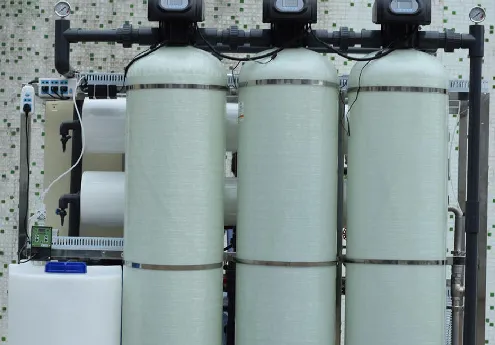loading...
- No. 9, Xingyuan South Street, Dongwaihuan Road, Zaoqiang County, Hengshui, Hebei, China
- admin@zjcomposites.com
- +86 15097380338
- Welcome to visit our website!
carbon filter vessel
Understanding Carbon Filter Vessels A Key Component in Water Treatment
In the realm of water treatment and purification, carbon filter vessels play a pivotal role in ensuring that our drinking water is clean, safe, and free from harmful contaminants. These vessels are designed to hold activated carbon, a highly porous material known for its excellent adsorption properties. This article delves into the significance, operation, and advantages of carbon filter vessels in modern water treatment systems.
What is a Carbon Filter Vessel?
A carbon filter vessel is essentially a container that houses activated carbon used for the filtration of water. These vessels vary in size and can be seen in both residential and industrial applications. The primary function of these vessels is to remove impurities and unwanted substances from water through the process of adsorption, where contaminants adhere to the surface area of the activated carbon.
How Does It Work?
The operation of a carbon filter vessel is relatively straightforward. Water is directed into the vessel, where it passes through a bed of activated carbon. As the water flows through, various contaminants—including chlorine, volatile organic compounds (VOCs), pesticides, and heavy metals—are trapped by the carbon particles. The effectiveness of this process hinges on the surface area of the activated carbon, which is significantly larger than that of conventional filtering materials.
The carbon used in these vessels is often treated with steam or chemicals to enhance its adsorptive capacity. The quality and type of activated carbon can vary based on the specific contaminants targeted for removal, making it essential to choose the right type for a given application. After a certain period, the carbon becomes saturated and must be either replaced or regenerated to maintain optimal performance.
Advantages of Carbon Filter Vessels
carbon filter vessel

1. Cost-Effective Compared to other filtration methods, carbon filter vessels are relatively affordable in terms of both initial investment and maintenance costs.
2. Chemical-Free Process Activated carbon filters do not require the use of chemical agents to purify water, making them an environmentally friendly option.
3. Improved Taste and Odor One of the most noticeable benefits of using a carbon filter vessel is the significant improvement in the taste and odor of the water, as chlorine and other unpleasant substances are effectively removed.
4. Versatile Applications Carbon filter vessels can be used in various settings, from household water purification systems to large-scale industrial water treatment facilities.
5. Simplicity of Use These systems are straightforward to operate and do not require extensive training to maintain, making them user-friendly for both homeowners and facility managers.
Conclusion
In summary, carbon filter vessels are an indispensable component of modern water treatment systems. Their ability to remove contaminants effectively, coupled with advantages such as cost-efficiency and environmental friendliness, makes them a popular choice for ensuring access to clean water. As the demand for high-quality water continues to rise globally, the role of carbon filter vessels will undoubtedly remain crucial in safeguarding public health and enhancing water quality. With advances in technology and materials, the future of carbon filtration looks promising, paving the way for even more efficient water treatment solutions.
-
The Rise of FRP Profiles: Strong, Lightweight, and Built to LastNewsJul.14,2025
-
SMC Panel Tanks: A Modern Water Storage Solution for All EnvironmentsNewsJul.14,2025
-
GRP Grating: A Modern Solution for Safe and Durable Access SystemsNewsJul.14,2025
-
Galvanized Steel Water Tanks: Durable, Reliable, and Ready for UseNewsJul.14,2025
-
FRP Mini Mesh Grating: The Safer, Smarter Flooring SolutionNewsJul.14,2025
-
Exploring FRP Vessels: Durable Solutions for Modern Fluid HandlingNewsJul.14,2025
-
GRP Structures: The Future of Lightweight, High-Performance EngineeringNewsJun.20,2025
